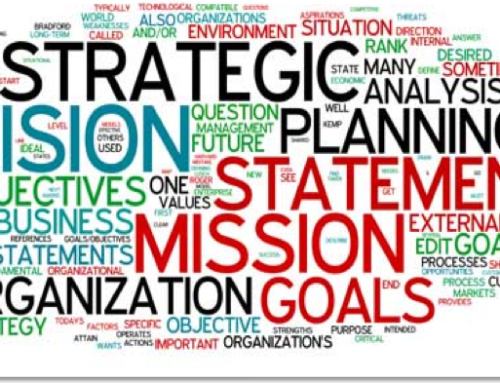While perusing my Facebook stream the other day, I came across this article on Business Insider. Its title alone (What PR People Really Think Of Journalists) told me the article was link bait.
What it didn’t tell me was that in attempting to “end” a decades, if not centuries, old rivalry, is that it would make every public relations pro look like an immature jerk.
For a very long time, public relations has used the media to tell the story of its clients. That’s changed a bit in recent years, thanks to the Internet, but that fact still holds true.
What a segment of this industry apparently doesn’t understand is that bloggers, reporters, commentators, anyone you’d define as a journalist, don’t owe us – PR pros – a damned thing.
Journalists are tasked with defending the best interests of the public. Not getting a client’s story on the front page. It’s just that simple.
I’ve worked both sides of the fence. I’ve pitched and been pitched. I feel confident when I say there are people both professions would be better off without on either side. An article like the one linked above doesn’t put journalists in place. It makes them angry, and far less likely to actually HELP you do your job.
Did you know that newspaper jobs are disappearing at an alarming rate? When there are, let’s say, four reporters in a newsroom to cover a population of 150,000, expecting journalists to drop everything they are doing and cover your story is slightly unreasonable.
For as long as journalism and public relations have existed, there’s been rivalry between them. Journalists generally feel like they hold the moral high ground; PR’s generally feel like they hold the keys to the stories that reporters cover. Animosity and a deep distrust of the other group has taken root because of this.
The truth is that this is a symbiotic relationship and neither can survive without the other. How do you work to bridge the gap between the two sides?
That’s what we should be focusing on.
Image: Polina Sergeeva via Flickr, CC 2.0

![[EVENT]: PR Hacks for Small Biz (online)](https://shonaliburke.com/wp-content/uploads/2021/06/FB-Ad-1200x800-01-01-01-Copy-500x383.jpeg)








[…] This post originally appeared on Waxing Unlyrical on January 24th, 2012. […]
I feel for good journalists. I really do. And I also feel for PR pros, being one myself. What is so fascinating is the way our worlds have diverged. I’m not a journalist, though I was one, briefly, many years ago, and even though I blog, I don’t consider myself “media,” though it’s certainly flattering when I’m invited to events or pitched as such.
Yesterday, I received a pitch that went:
“Please find the press release for [magazine name]’s [initiative name] initiative attached. This special is running on [magazine name]’s website throughout the month of February. Feel free to contact me with any questions!”
It was sent to me by the editor-in-chief of this particular magazine. No personalization, no nothing. So I get the frustration that media relations pros feel when journos lord it over them, yet end up doing silly things like this.
I’ve also been at far too many events where I’ve seen journos/former journos wanting to “switch over to the dark side” (they actually use those words), because, as far as they’re concerned, they’ll be excellent PR pros because of their journalistic background. Some do make it, and do great. A lot don’t. But there is a level of arrogance that is… how should I put it… unsettling.
I agree that this kind of rivalry doesn’t get anyone anywhere. But a little humility, and willingness to learn, goes a long way.
@joshhumble @kyleplacy Thanks for sharing @MattLaCasse post!
Sorry. I hit “post” before I finished.
Need to explain that last part. What I’ve seen is that due to the large amount of grunt work requried in PR, those in their 20s tend to dominate the ranks. As they proceed into their early 30s, some make the commitment to becoming true PR professionals and strive for excellence through their work, professional development, and real relationship-building in business, the field and with journalists (not just networking). Those who don’t make this commitment are often passed up for promotions, stagnant in their positions and become very frustrated. They either stay in a rut for a long time, or they move on to another field. It’s just that simple. The author of that article is likely to be one of those who’s doing something else a few years from now because he hasn’t taken the time to develop beyond anyone with one year of experience, including an internship.
In the first couple of items in this article you linked to, I thought the writer was on to something, but unfortunately, I read on. Everyone who posted here made excellent points about what we should do. This article is about much more than the rivalry between journalists and PR types. It’s more about that segment of the PR world that doesn’t get it, and usually moves on to another profession by their early 30s. Then they leave this kind of mess in their wake for the rest of us to clean up.
Not to sound old, but it is what it is. I’ve been in the PR business for 27 years and that was after a few years in broadcasting. Journalists can be very arrogant and often put us in a bind when they don’t keep their words. At the same time, I recently attended a PR trade group meeting and asked one of my fellow seasoned vets, “Where is everyone over the age of 30?” I sort of knew the answer because I’ve seen this cycle time and again.
@mdbarber Thanks Mary! Staying warm?
@MattLaCasse LOL!!! It’s finally above zero this morning. First time in what seems like weeks. Supposed to be 20 on Wed. Shorts! You?
@mdbarber I’m well and staying warm. We’re supposed to hit 60 here today. Debating firing the grill up tonight. ;)
@MattLaCasse Amazingly bizarre weather this winter. My grill won’t be accessible until about May 1. Buried under near record snow
@mdbarber We had that last winter. In fact, tomorrow is 1yr anniversary of blizzard that dumped almost 30in in 24 hours.
@MattLaCasse So true. Guess it’s our turn then. Enjoy your warmth!
@mdbarber I will. I’m just fearing that Mother Nature will dump on us later on.
There needs to be a balance on both sides for sure. PR people need to be very concise with their pitches, so that journalists can quickly find the more important ones. Whereas journalists need to improve their analytical skills in order to find the better stories that so many PR people are trying to pitch out to them. I believe that as the field progresses, things will work for the better.
@Agarza239 I think PR pros need to make sure their pitches are newsworthy in the first place. New Gizmo Of The Month isn’t exactly newsworthy, unless it’s an improvement on an existing, already popular, product. But you’re right. PR’s need to be as concise as possible.
[…] Found here. […]
@JGarant Thanks so much for the RT, Jamie!
@kathikruse Thanks so much for sharing @MattLaCasse post!
@shonali @kathikruse Seconded. Thanks Kathi!
@MattLaCasse this is a great, thought-provoking post Matt – thank you for sharing. I agree with @jenzings that the opportunity has never been greater for communications pros to assist and develop relationships with those in newsrooms to achieve mutually beneficial results. The irony/danger is that with these boundaries to entry/connection with journalists and newsrooms lower than ever before, we pros forget to do our homework and really come to understand and follow the journalists we wish to work with. Just because we can send a tweet, doesn’t mean we should skip the work of following their articles, reading their blogs, and getting to really know them and their work. I hope it’s an opportunity that neither side of the relationship is willing to miss and let slide as both fields evolve at a time of rapid change in media.
@JGarant @jenzings Spot on Jamie. There’s some arrogance on both sides; and we all need to get over ourselves. Social media only makes it easier to get to know each other. It doesn’t excuse us from doing our homework.
@arkarthick Thanks for the RT! @shonali
@MattLaCasse You’re welcome. :) @shonali
@arkarthick Thanks so much for sharing @MattLaCasse post!
@pursuitcomms @iggypintado Thanks so much for sharing @MattLaCasse post and @renailemay too, including the “um”!
@shonali @pursuitcomms @iggypintado @renailemay agreed! Thanks so much!
“The truth is that this is a symbiotic relationship and neither can survive without the other.” This is even more true today. With strapped journalists doing more and more, with less resources, it is the job of the PR pro to help that journalist get everything he or she needs, when they need it (preferably, before they need it).
That means eliminating jargon and being as comprehensive with your information as possible.
@FlackList Thanks for the RT guys!
@djenningspr Thanks for the RT and compliment Don!
@MattLaCasse spot on, not sure why/where the whole competitive/negative relationship aspect started, but no need for it imho
@djenningspr None at all. Any PR who thinks a product launch of ANY kind is headline news is sorely mistaken. unless it’s cure for cancer.
Great points, Matt. Like several folks have mentioned below, you included, when you’re in a small town and the journalist is likely to run the release verbatim, you really do want it to be proofed to the hilt AND newsworthy. Similarly, we as PR pros have to work with our clients to elevate their understanding about what hits and what sits. Somehow letting them know that it’s the art of relationship building and timing that will eventually land us the story, not just the mere notion of the story. Paying us to build relationships is a tough call for many a client. That’s where a lot of the online or “new” journos come in. There’s a quick response, ease of relationship building due to social media platforms, and the likelihood that your pitch will land in some venue that actually does have relevance to your client’s target audience.
.
You’re so right, Matt. We can all remember “back in the day” stories when reporters were just waiting for the phone to ring only to be pitched by flacks (that was me), uhmm, media relations pros.
I’ll always remember George Lazarus at the Tribune (he’s passed many years ago) who was a rite of passage for all newbie pitchers. He hated us and we were scared of him; barking all the time. But, when we got a story hit in his column, boy did we get the kudos.
Anyhow, there needs to be respect on both sides of the fence. When everyone can agree each of us is just doing our job, then perhaps that’s where the nurturing begins.
@Soulati | PR The crazy thing is that people forget the golden rule. If you want to be respected as a professional, on either side, you HAVE to be willing to give respect. Just infuriates me when either side is arrogant enough to think it can truly live without the other.
@ShakirahDawud @chillygal Thanks for the RT’s ladies!
@shakirahdawud Thanks for sharing @MattLaCasse post!
The ironic thing is that with newsroom staffs shrinking, the potential for PR pros to actually assist journalists is higher than ever. Yet this back and forth “rivalry” seems as bad as ever. PR pros can help by: not pitching stories that aren’t stories, respecting deadlines, and yes, doing their homework instead of sending mass-spamming emails.
In part, what needs to happen is extremely difficult–in particular, PR pros need to work hard with clients to determine exactly what is newsworthy and likely to receive coverage. Unfortunately, the profession has a lot of work to do to catch up if we are still pushing AVEs and clip counts as measures of success (and yes, unequivocally, this is still being done).
@jenzings The other problem here is that I see more and more newspapers, at least on the smaller, local level, that are running press releases, almost word for word, as if they were stories. All because they have smaller staffs but still need to provide content. That scares me.
@KenMueller@jenzings Great points, both of you guys. Neither side is completely blameless in all of this, but I feel like latitude must be given to journalists because of the state of that industry at the moment. Because I work in a small town, I know my releases have to be SPOTLESS because the weekly papers that cover my organization will run my releases verbatim.
Jen, I think you’ve h it the nail on the head. PR’s must do a better job at pitching only things that are newsworthy. That makes saying “no” to a client all the more important. It forces us to be better; obviously, some aren’t up to that task.